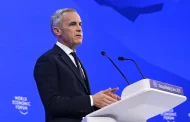“As Russia came to terms with the challenge associated with the lack of combat infantry personnel in its war with Ukraine, the resort to conscription of prisoners became a viable option. It was reported that between 7,000 to 10,000 convicts had been sent to fight in Ukraine on behalf of the Russian Federation”.
That is the opening sentence of recent Policy Brief by Dr. Chris Kwaja, an Associate Professor of International Relations and Strategic Studies at the Centre for Peace and Security Studies, Modibbo Adama University, Yola, Adamawa State, Nigeria. According to essay, not only is conscription on, only two are believed to be still alive out of the 500 prisoners sent to Ukraine. Beyond that, there is no documentation of the nationalities of the prisoner-conscripts.
This is a different dimension of the war in Ukraine that is just coming out, particularly as it relates to Africa whose nationals are mostly involved. The death of Lemekhani Nyirenda, a 23-year-old Zambian student of the Moscow Physics and Engineering Institute, serving a nine-year jail term for drug-related offences in a Russian prison provides the character of this dimension in Kwaja’s essay. Wagner Group, the Russian mercenary platform is credited with mobilizing the deceased to fight in Ukraine, leading to his death. The response of the Russian Government to the request of the Government of Zambia for full details of what happened in this particular case did not offer anything considered cogent in relation to the circumstance of the death.
That stuff happen in war is what the Brief is pointing at and, therefore, a suggestion that war can cut in many directions beyond the key conflict parties. By implication, the essay invites its readers to rethink the pitfalls of concepts such as ‘Just War’. No war can be just because fighting violence with violence can be all consuming.
The process of post conflict peace-making in Ukraine, if we follow this Brief, is pointing at Africa as a major party at the table as the source of many unwilling fighters, the compensation for whom has to be worked out. But when will the shooting itself be brought to a close? A tough question, what with the assemblage of interests and their agenda in the war now.
Dr Kwaja does it well again by bringing to light a dimension many may never even been aware of, much less have paid any attention. It is equally right that he chose a more accessible and less time wasting in publishing the stuff. A standard journal would have been coming out with this when it is almost no longer an issue. Let scholarship be disseminated in forms that are timely and accessible. Such does not make this any less scholarly. People are encouraged to read the free, downloadable piece and make up their mind on the issue based on the evidence provided.




























